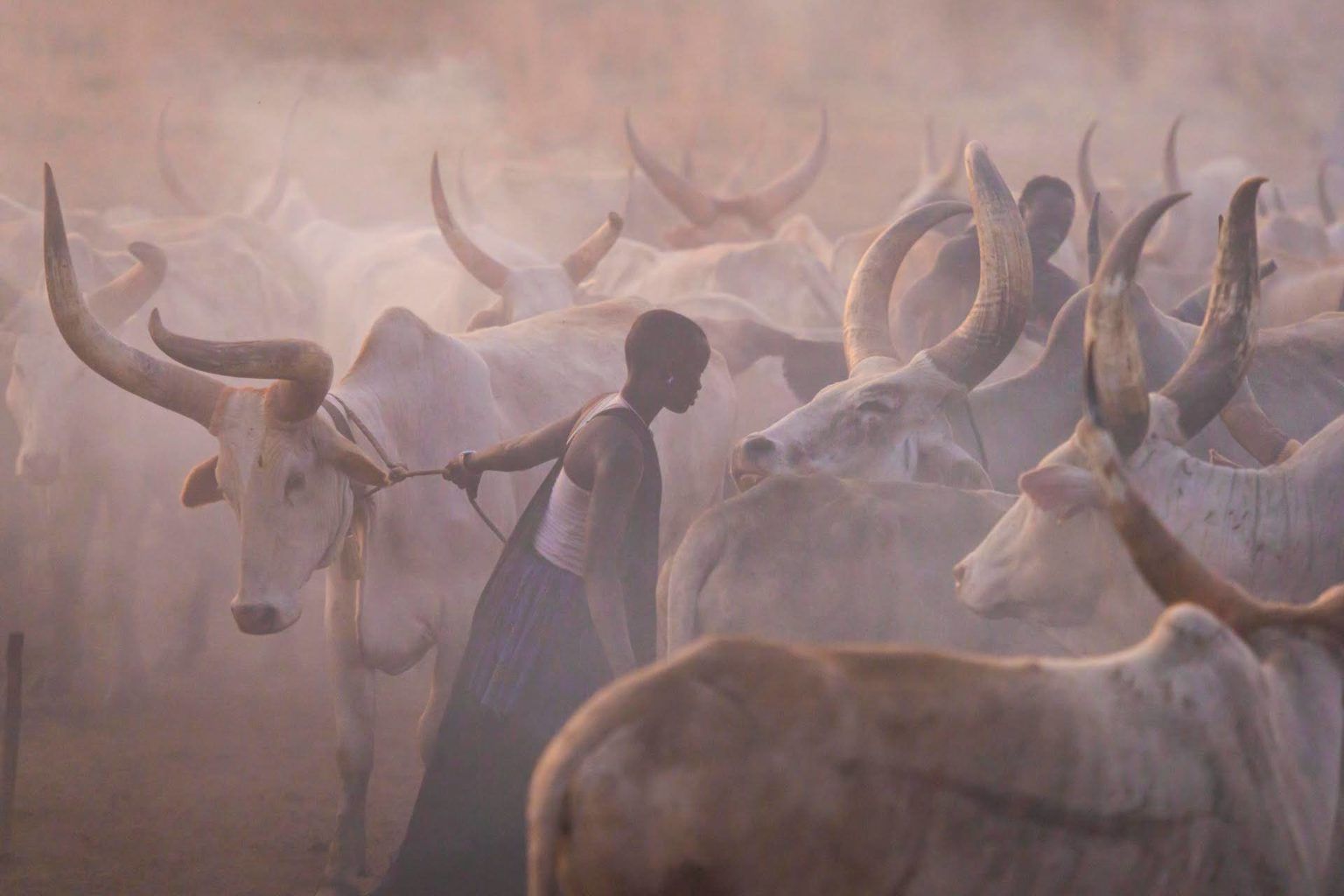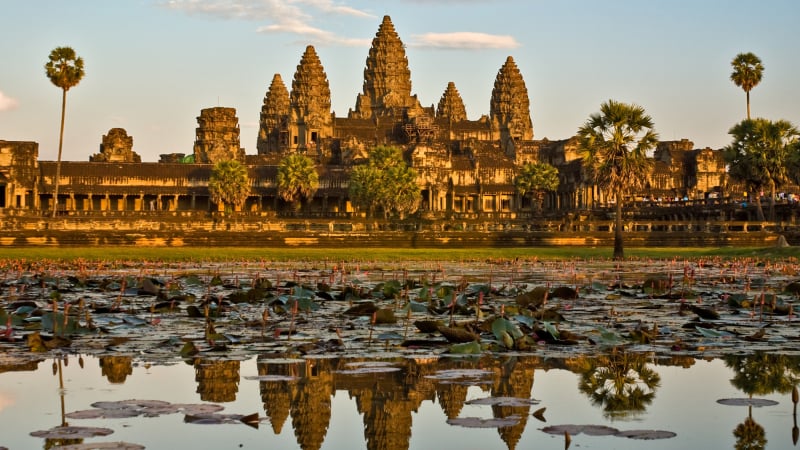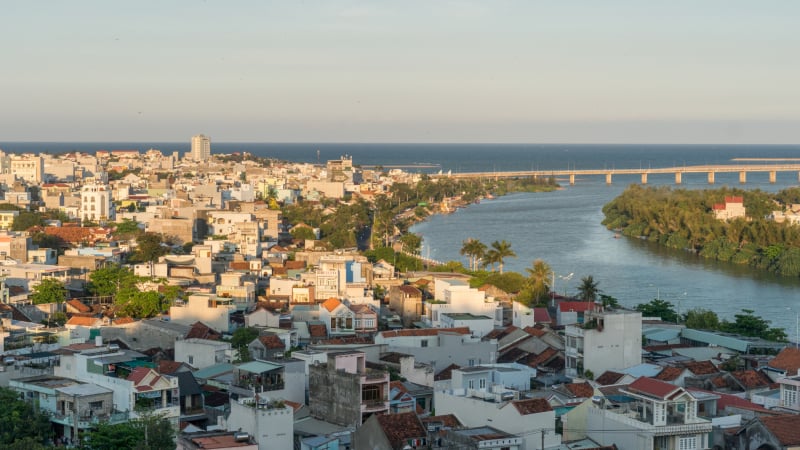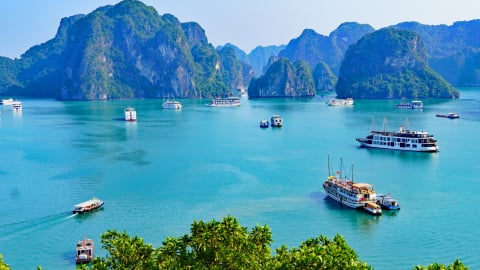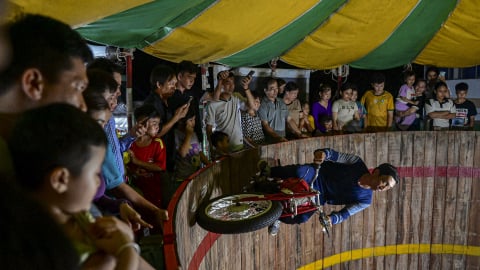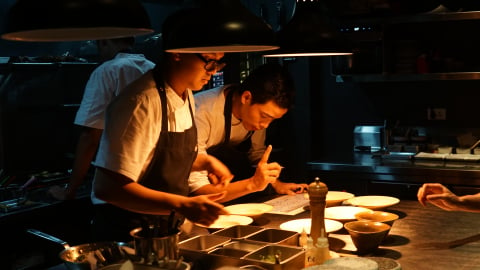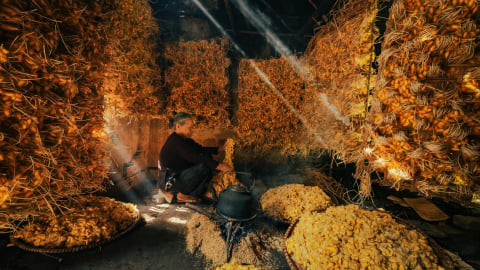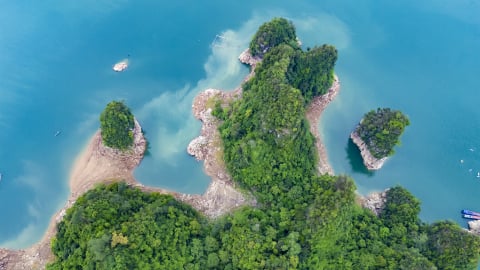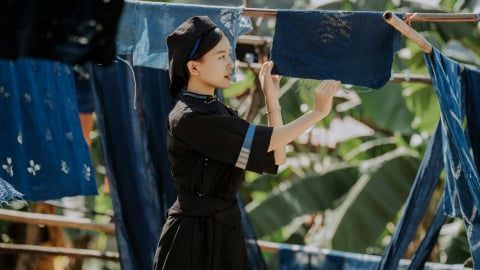Deep in Africa, nestled in the vast Nile Valley, the Mundari tribe has existed for thousands of years with a unique and fascinating culture. This is an indigenous community where facial scarification is not only a ritual but also a symbol of identity, and the sacred cow occupies a central place in all aspects of life.
Their lives are deeply intertwined with nature, where traditional customs are preserved through generations, creating an unmistakable identity.
Ankole-Watusi cows are associated with the "breath" of the people here.
According to Africa Geographic, a prestigious tourism and conservation organization operating in Africa since 1991, the Mundari tribe is an indigenous ethnic group of the Nile Valley. The land surrounded by the Nile River has created favorable conditions for them to develop a strong livestock industry. Since ancient times, the Mundari people have had a deep affection and special respect for livestock, especially the Ankole-Watusi cow with its giant horns, which is considered the "king of livestock".
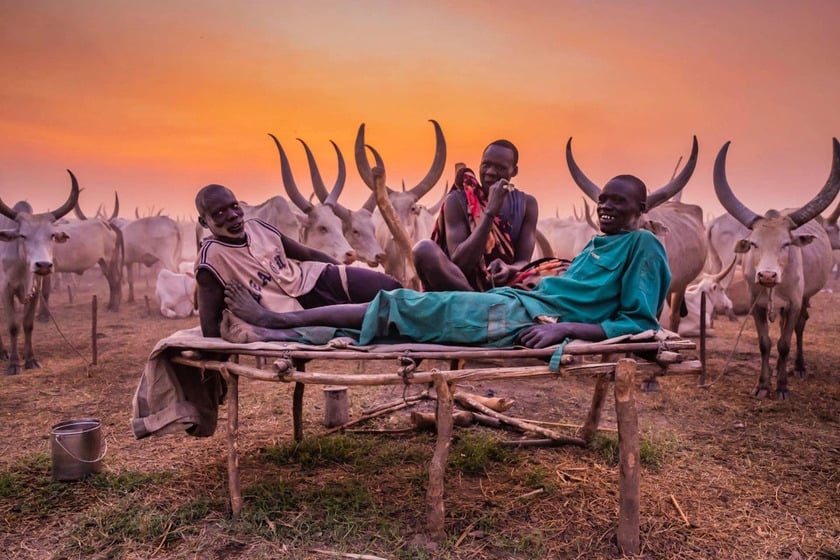
The Mundari are an indigenous ethnic group of the Nile Valley. Because the Mundari land is surrounded by the Nile River, they have good conditions for raising livestock, so they have long had a tradition of valuing livestock, especially cows.
In Mundari culture, cattle, and especially the Ankole-Watusi cows, are considered as symbols of power, sacred animals, and the most valuable living assets. A person’s position in Mundari society is clearly defined by the quantity and quality of cattle ownership. Their daily lives revolve around cows, to the extent that sometimes the life of a cow is considered more important than a human life in some contexts. Disputes within the tribe are not usually about land, but mainly about cows.
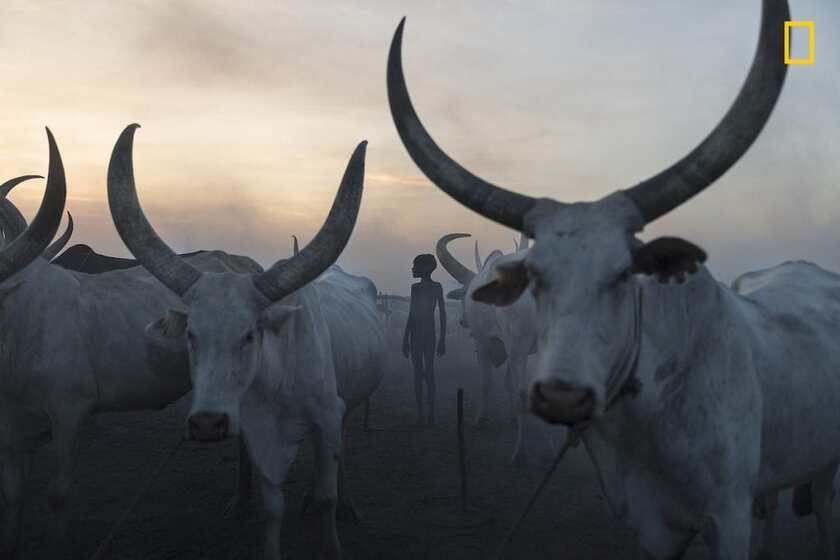
These cows are known as the "king of cattle".
Cows also play a central role in important social events. Typically, at weddings, the groom's family must give the bride's family up to 40 cows as a dowry, a sign of wealth and respect.
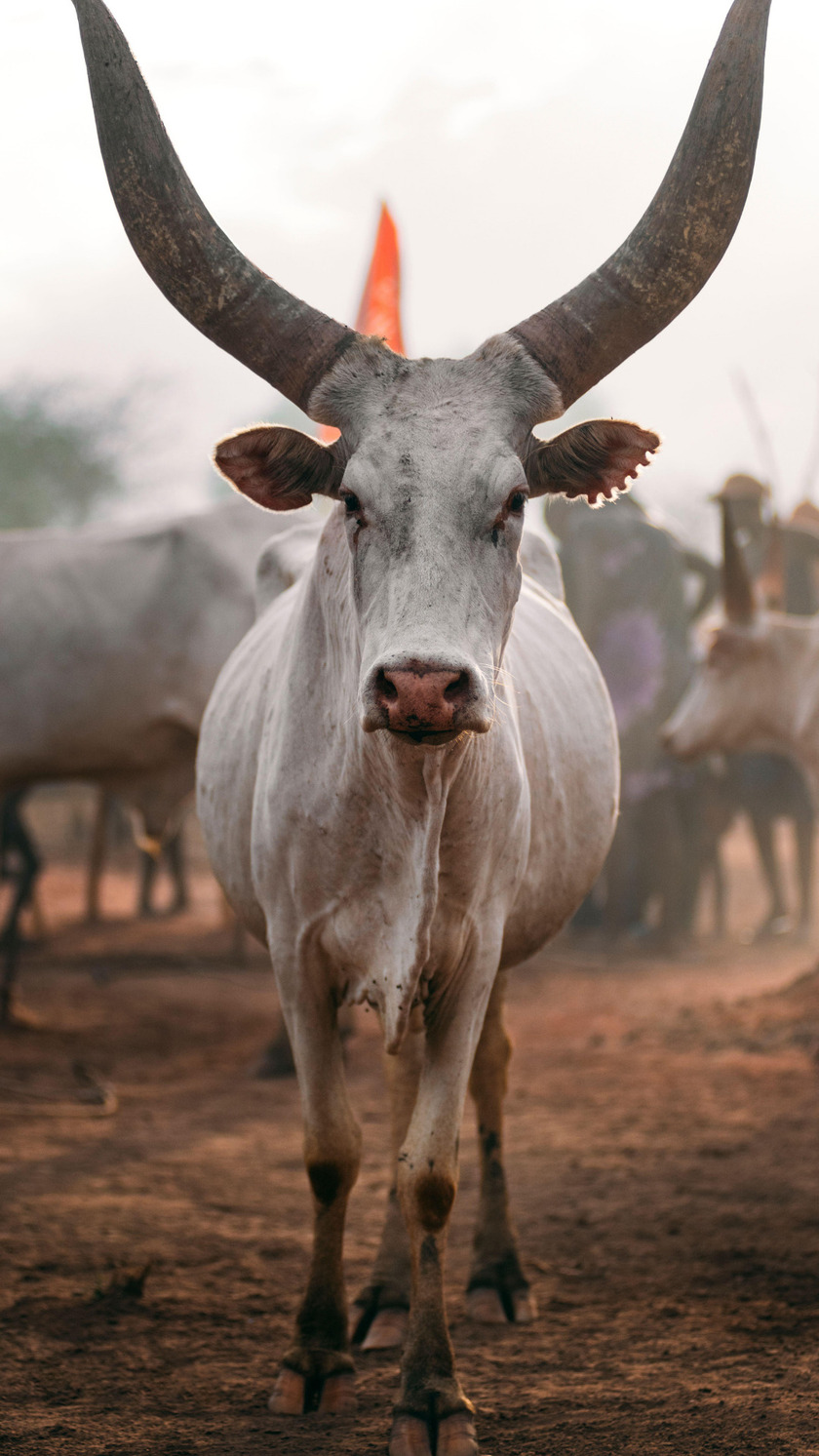
Cows play an important role in Mundari culture.
For the Mundari, facial scars are not a defect but a symbol of beauty and resilience. They are an important part of the rite of passage for men. Adult Mundari men must participate in a series of rituals and festivals with their village elders for three months. After this process, they will have V-shaped incisions on their foreheads, symbolizing maturity and courage.
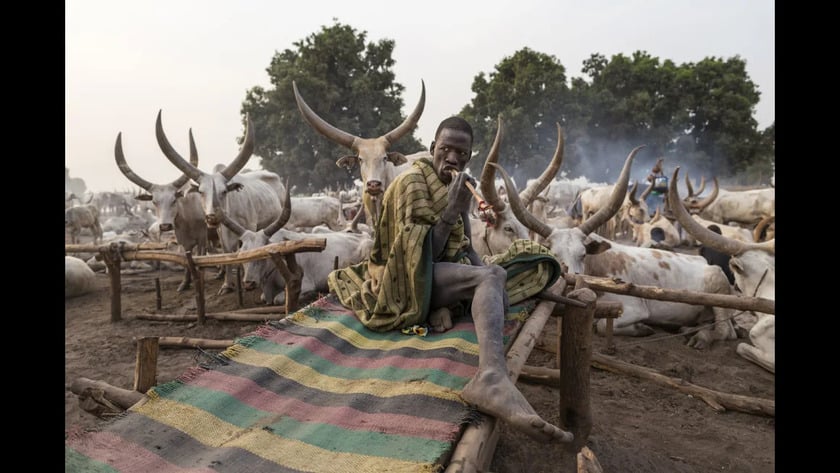
Their lives revolve around cows and sometimes, cow lives are more precious than human lives.
Mundari people’s lives are closely tied to their cattle, and responsibilities are clearly divided. Men lead the cattle to the fields during the day and bring them back to the farm before sunset. Women are responsible for cleaning and preparing food for everyone. Children clean the farm by collecting cow dung and burning it in the late afternoon. “The smoke creates a unique setting for photographers,” commented a writer for Africa Geographic.
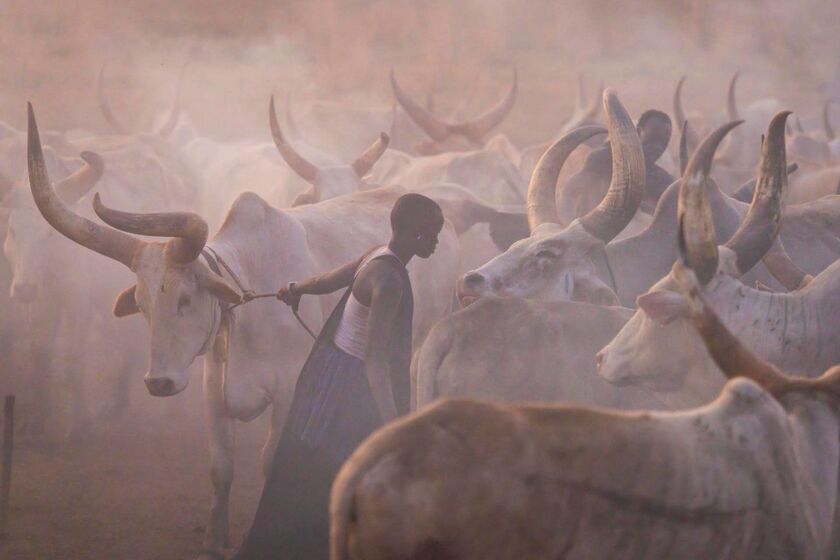
Social status in the Mundari community is determined by cattle ownership.
Surprisingly, the ash left over from burning cow dung is used by the Mundari as a natural insect repellant, not only for themselves but also for their cattle. It is also used to make toothpaste. The Mundari also make great use of other cow products: they drink cow milk directly, and cow blood is an important part of their daily diet, although they do not regularly eat beef.
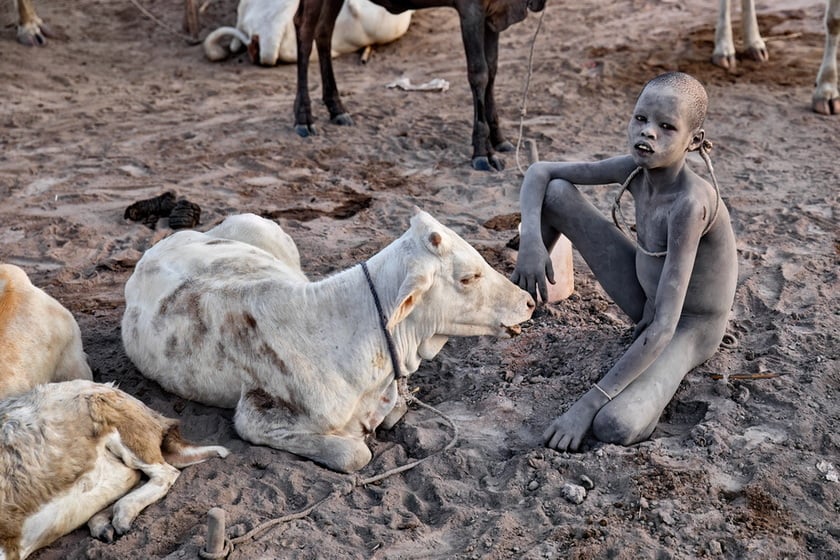
In an environment lacking water, according to Johnny, owner of the blog One Step 4ward, when visiting the tribe in 2023, people mainly bathe in cow urine. They also use cow urine to wash their hands, face and remove hair. Many people even drink cow urine because they believe it is a pure water source. Cow urine is also combined with ash to create a substance to polish the horns of cattle, showing the thoughtful care they give to their pets.
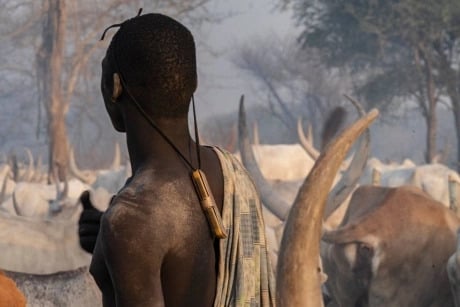
Although many Mundari people are armed with guns, they prefer not to use them in warfare. Instead, guns are used primarily to protect their livestock from threats. This once again affirms the primacy of the cow in their lives and culture.
While preserving ancient traditions, the Mundari way of life is also undergoing certain changes. According to Africa Geographic, young people are starting to “see the outside world through smartphones”, showing a convergence with the modern world.
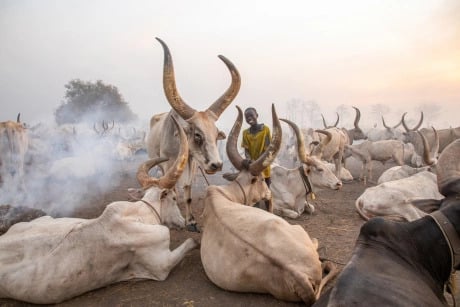
Nowadays, tourism is developed, many tourists can come and experience the rich life of the Mundari people.
Currently, many travel agencies are offering tours to visit tribes in Sudan, including the Mundari. This gives visitors the opportunity to explore and learn about their unique lifestyle and customs, and hopefully contribute to the preservation of this precious cultural heritage.





